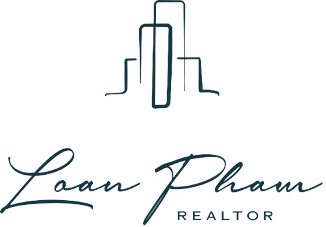Essential Insights About HOA Communities
For many homebuyers, moving into a neighborhood managed by a Homeowners’ Association (HOA) can offer a sense of security and order. However, living in an HOA community isn’t the right choice for everyone. Before you make this important decision, there are several key aspects you should understand to avoid surprises and ensure your new home aligns with your lifestyle and expectations.
What Does Living in an HOA Community Entail?
Overview of HOA Rules and Regulations
When you move into an HOA community, you agree to abide by its governing rules and regulations, often outlined in a document called the Covenants, Conditions, and Restrictions (CC&Rs). These rules can cover everything from the color you can paint your home to how high your hedges can grow. While these guidelines are designed to maintain property values and community standards, they can also feel restrictive if you’re used to more personal freedom.
Role of the HOA Board
The HOA board is responsible for managing the community, enforcing rules, and addressing resident concerns. Typically, the board is made up of volunteer homeowners elected by the community. However, the effectiveness of the board can vary depending on its leadership skills and commitment to fairness.

The Financial Commitment of HOA Communities
HOA Fees and Dues
Every resident in an HOA community is required to pay regular fees, which fund the maintenance of shared spaces, amenities, and essential services. These fees vary widely depending on the community’s size, location, and the number of amenities provided.
Hidden Costs and Fee Increases
In addition to regular dues, homeowners may face special assessments—one-time fees charged to cover unexpected expenses like major repairs or upgrades to community facilities. HOA fees can also increase over time, which may strain your budget if you’re unprepared.
Rules and Restrictions to Be Aware Of
Home Design and Landscaping Rules
HOAs often enforce strict guidelines regarding the appearance of homes and yards to maintain uniformity. This can include rules about paint colors, fencing materials, lawn maintenance, and even the types of flowers you can plant.
Pet and Noise Regulations
Most HOAs have policies regarding pets, including restrictions on the number, size, or breed of animals allowed in the community. Noise levels are another common focus, with quiet hours often enforced to ensure a peaceful environment for all residents
Benefits of HOA Communities
Property Value Protection
One of the main advantages of living in an HOA community is the assurance that your investment is protected. By maintaining neighborhood standards, HOAs help ensure that properties retain their value over time. This is particularly appealing to homeowners who prioritize long-term financial stability
Enhanced Quality of Life with Amenities
HOA communities often provide access to amenities that enhance residents’ quality of life, such as fitness centers, swimming pools, parks, and walking trails. These amenities are maintained collectively, giving homeowners the benefit of luxury facilities without the hassle of individual upkeep.
Challenges and Potential Drawbacks
Limited Flexibility for Homeowners
The same rules that maintain neighborhood harmony can feel restrictive to some homeowners. If you value personal freedom and prefer making unique changes to your property, living in an HOA may not be ideal
Conflict Resolution and Governance Issues
Although HOAs are designed to mediate disputes and enforce rules, disagreements can arise between homeowners and the HOA board. In some cases, boards may be perceived as overly strict, biased, or unresponsive, leading to frustration among residents.
Questions to Ask Before Moving into an HOA Community
Before purchasing a home in an HOA community, take the time to research and ask critical questions. Doing so will help you make an informed decision.
What Are the HOA’s Rules and Bylaws?
Request a copy of the community’s CC&Rs, as well as any additional bylaws or guidelines. Review them carefully to ensure they align with your lifestyle.
How Are HOA Fees Spent?
Ask for a breakdown of how the HOA allocates its budget. Look for transparency in how fees are spent and whether the HOA has a reserve fund for emergencies.
What Is the Financial Health of the HOA?
A financially stable HOA is less likely to impose frequent fee increases or special assessments. Request a copy of the HOA’s financial statements or reserve study to assess its stability.
Conclusion: Preparing for HOA Living
Living in an HOA community offers a range of benefits, including access to shared amenities, well-maintained surroundings, and preserved property values. However, these perks come with fees, restrictions, and potential governance issues that may not suit everyone. By thoroughly researching the HOA, reviewing its rules, and evaluating your financial capacity, you can make an informed decision about whether HOA living aligns with your lifestyle. Ultimately, the right choice depends on your priorities and willingness to embrace the structured environment an HOA provides.

